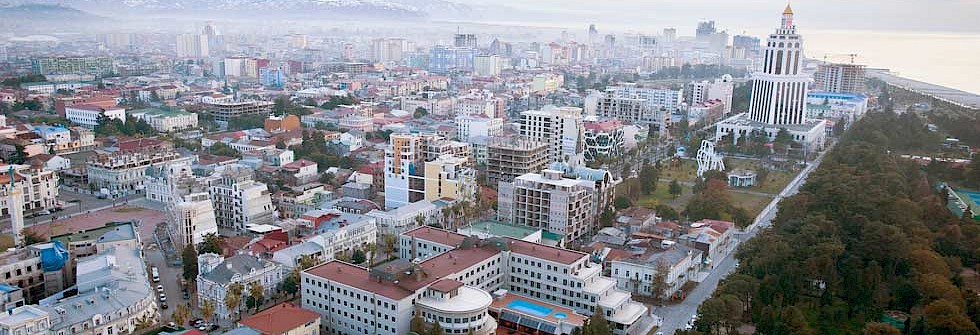Georgia offers Europe a path to the Caucasus not only due to its geographically strategic location, but its readiness to work with international investors in a transparent, business-friendly manner.
While Georgia may be under the radar for many investors, several major players have seen potential in this small nation, from BP to the United Arab Emirates’ Ras Al Khaimah Investment Authority (Rakia).
Now that the deep and comprehensive free trade agreement (DCFTA) has been forged between Georgia and the EU, further opportunities are set to arise. With this in mind, in April 2014 the British-Georgian Chamber of Commerce opened an office in Tbilisi, to further its aims of facilitating business growth and contacts at senior levels.
Setting up the chamber in London seven years ago, co-founders Lord Cromwell and director Mako Abashidze, along with original members BP, HSBC and law firm Baker & McKenzie, saw the need for an organisation to give information on doing business in Georgia and its culture. “Setting up the Tbilisi office is a vital next step at an opportune time,” Abashidze believes. “We work very closely with the government and it’s a very good partnership.”
“No other countries in our region can offer this spectrum of positive factors.”
Giorgi Kvirikashvili Minister of economy and sustainable development
Tweet ThisA vital prerequisite for business is stability, both political and economic. Here, Georgia boasts an enviable track record: in successive elections, this former Soviet state has accomplished democratic and peaceful transitions of power,
allowing a series of administrations to make positive strides in pro-business reform. The current government, led by the Georgian Dream party, has maintained continuity by pursuing policies that favour a free market, low regulation and a liberal tax regime.
A bridge between Europe and Central Asia
With these reforms, Georgia seeks to make the most of its advantageous position, accessible from Europe, but close to the dynamic economy of Turkey, Azerbaijan’s oilfields and Russia. Although growing links to the EU are vital to its development, Georgia maintains close relations with its neighbours to the East.
“We already have free trade agreements with every CIS country,” says Giorgi Pertaia, director of the Georgian National Investment Agency, adding that this alone provides the country with customs-free access to a market of around 400 million. “You can be in those countries, selling your products, but you are based here and you are treated in the same way as companies are treated in Europe.”
“An investor can set up a company in Georgia in one day.”
Giorgi Pertaia Director of the Georgian National Investment Agency
Tweet ThisPro-business government
World Bank rankings, based on such metrics as gaining credit, registering property and protecting investors, place Georgia as the world’s eighth easiest country to do business. The institution has hailed the country’s sustained
reform, which has seen it jump from 112th place in 2005, as “unprecedented”. Meanwhile, the Doing Business Reformer Club awarded the country its ‘Top Reformer’ position on a five-year measure of cumulative change. Pertaia proudly notes that an investor can set up a company there in one day, “and if you have the right documents ready, you can do it in hours.”
“The European Bank for Reconstruction and Development (EBRD) has been impressed with Georgia’s progress”, says Bruno Balvanera, the institution’s director for the Caucasus, Moldova and Belarus. “Georgia is a country that has got rid of corruption. You have rules, transparency and it ranks very well in the Doing Business list.” The EBRD now plans to develop a financial instrument following the free trade agreement to help Georgian companies comply with European market standards.
Liberal taxation
Since 2004, Georgia’s tax authority has simplified its tax code, improved administration and increased enforcement. It has reduced the number of taxes from 21 to just six today: income, corporate profit, VAT, excise, import and property, without any payroll or social insurance taxes. Georgia’s 15 percent corporate income taxation rate is lower than all of its immediate neighbours, including Russia, Armenia and Turkey.
Rakia is developing a free industrial zone near the Black Sea port of Poti, where businesses will be exempted from 99 percent of taxes. CEO of Rakia Georgia, Guga Tsanava, explains that this is a priority above the fund’s investments in retail and tourism. “We think it has huge potential because it is one of a kind in Georgia. We are in active negotiation with a couple of anchor companies, offering whatever assistance is necessary. We are also working towards international financial reporting standards.”
